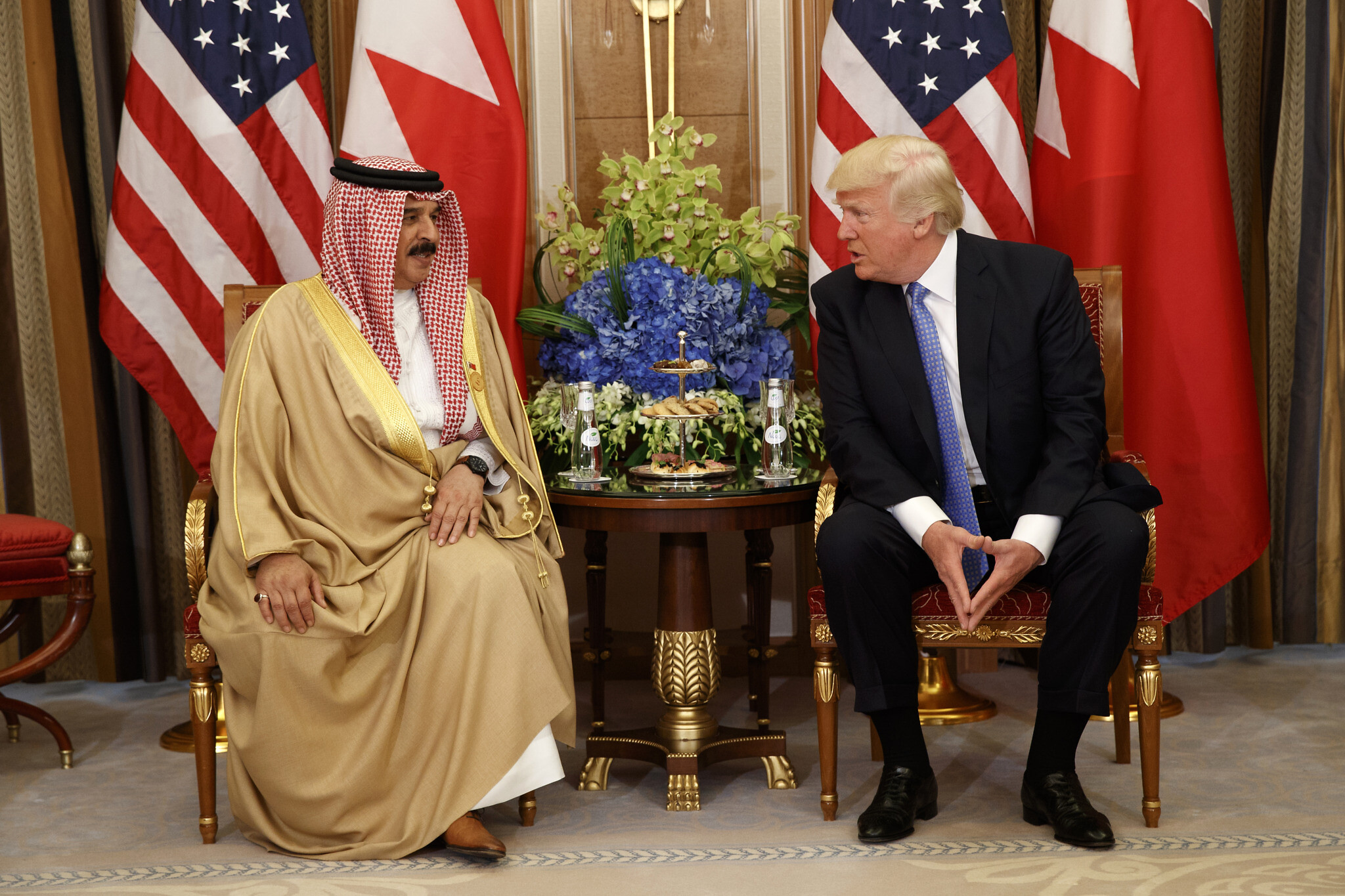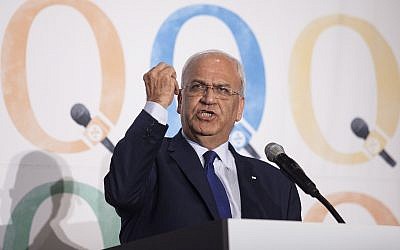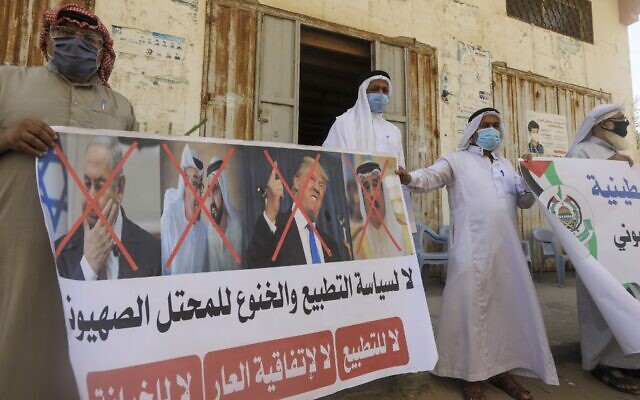
Saeb Erekat says Manama had emphasized their commitment to the Arab Peace Initiative, which requires peace with Palestinians before normalization, in private as well as in public.
A top Palestinian official said Saturday that Bahraini officials had promised Ramallah a week ago that they would not normalize with Israel before the establishment of a Palestinian state.
The comments from chief Palestinian negotiator Saeb Erekat came a day after the US announced that Israel and Bahrain would be establishing full ties, drawing angry denunciations from Palestinians, who have found themselves increasingly isolated by Gulf states opening up to Israel.
“We were in communication with the Bahrainis, and we spoke with our Bahraini brothers … the king issued a statement saying that they would adhere to the Arab Peace Initiative, and that there won’t be peace, all this was a week ago!” Erekat said in an interview with Qatari-sponsored Al-Jazeera.
With the announcement, Bahrain will become the second Gulf country to establish open ties with Israel in less than a month, following the United Arab Emirates.
By normalizing with Israel, both countries broke with the 2002 Arab Peace Initiative, initially proposed by Saudi Arabia and adapted by the Arab League.
Israel Fund conference in New York City, on December 13, 2015.
(Amir Levy/Flash90)
The Initiative states that Arab countries will wait until the establishment of a Palestinian state before normalizing relations with Israel.
Erekat, a close adviser to Palestinian Authority President Mahmoud Abbas, appeared to be referring to a September 6 meeting he had with Bahrain’s Foreign Minister Abdul Latif al-Zayani. After the meeting Erekat released a statement saying that he had received confirmation of Bahrain’s commitment to the Arab Peace Initiative.
“[Bahrain is] fully committed to the API [Arab Peace Initiative] and ending the occupation, and that peace will happen there is a Palestine with East Jerusalem as its capital, based on the 1967 borders,” Erekat tweeted in Arabic and English at the time.
There was no statement on the meeting from Manama.
Bahrain praised the United Arab Emirates’ decision to normalize relations with Israel in mid-August, calling it “steps which strengthened the opportunities to reach peace in the Middle East.”
At the same time, it publicly rebuffed US pressure to announce ties with Israel and appeared to indicate it would follow the lead of Saudi Arabia.
“The importance of intensifying efforts to end the Palestinian-Israeli conflict according to the two-state solution…in accordance with international law and the Arab Peace Initiative,” Bahrain King Hamad bin Isa Al Khalifa said in a statement after meeting with US Secretary of State Mike Pompeo in late August.

Days later Hamad told US presidential adviser Jared Kushner that “solidarity and stability depends, on all issues, on the Kingdom of Saudi Arabia … affirming Bahrain’s unwavering support to the Kingdom of Saudi Arabia in achieving further regional prosperity and stability,” according to a statement from Bahrain’s state news agency.
‘Our choices have not changed’
Many analysts see Bahrain’s normalization as a trial balloon for Saudi Arabia’s own eventual push for open ties with Israel. The island kingdom lost much of its autonomy following the Arab Spring, when a Saudi-led military intervention crushed a protest movement calling for the end of the ruling monarchy.
At a summit of the 22-member Arab League this week, foreign ministers failed to back a Palestinian push to condemn last month’s US-brokered normalization deal between Israel and the United Arab Emirates, highlighting at least tacit support for the move.
While Erekat acknowledged that Arab politics was entering a “new phase,” he seemed to suggest that Ramallah would not change tack in response to the two normalization agreements.
“Our choices have not changed due to what happened between the Emirates and Israel. It is not about peace, nor does it have anything to do with the Palestinian cause,” Erekat said.
Erekat said that whatever the decisions made by Bahrain and the UAE, he believed that Palestine was still a popular cause around the Arab world.
“We know that for all the Arab peoples, despite the positions of some Arab regimes, that Jerusalem is their Jerusalem, that its holy sites are their holy sites, that Palestine is theirs, and that its martyrs are their martyrs,” Erekat said.
Unlike in the UAE, opposition to normalization runs deep in Bahrain, which has a history of open politics and civil society movements, even if they have been suppressed over the past decade.
compass,’ in support of Palestinians and images of prominent jailed
opposition leader Sheikh Ali Salman in Diraz, Bahrain, during a
Jerusalem Day rally after Friday prayers, July 10, 2015
(AP Photo/Hasan Jamali)
“This is a day of disaster, a black day in our history,” said Khalil Buhazza, a Bahraini youth activist.
“None of us will ever visit Palestine unless it is freed and it is an independent state,” he told AFP.
Bahrain’s decision seemed to take the Palestinian leadership by surprise. In the aftermath of the UAE normalization agreement in mid-August, Erekat told The Times of Israel that he was confident that Saudi Arabia or other Gulf states would not normalize with Israel.
“The Gulf will not normalize with Israel. Saudi Arabia will not normalize with Israel, not under any circumstances,” Erekat told The Times of Israel in August.
(Times of Israel).


